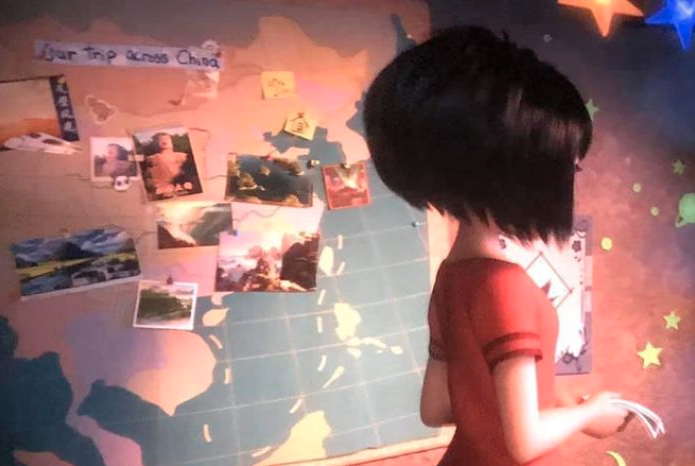 |
| Carvin first drafts me and then she takes an action shot. |
I got grabbed by Stephanie Carvin as she was off to teach her International Security course yesterday. The day's topic was alliances, and she thought I might have a few things to say about Trump/Turkey/Kurds. She wasn't wrong. My 20 minute guest gig went on for 45 minutes or so. The class had read a bunch of alliance stuff (including
a piece by my former student Jessica Trisko Darden and my pod-cast pal, Stefanie von Hlatky, the
Steve and Dave ISQ piece, and a bunch of other stuff), so they were armed with heaps of IR theory.
I started with the Alliance Dilemma (
hat tip to Glenn Snyder): that any country has to fear two things--being abandoned by their ally and being dragged into a conflict by an ally. I asserted that usually a country fears one or the other, but the joy of the Trump era is that countries can feel simultaneously too strongly connected to an aggressive ally and also likely to be dropped at a moment's notice (or a tweet's) by said ally. That one of the core ideas of Neo-Realism is that the system is one of self-help so relying on others for one's security is always, always perilous. While Waltz (father of Neo-Realism) might not have anticipated Donald Trump, his theory is not focused on the strange behaviors of an individual state, but how the general dynamics of the system will, well, punish those who make poor decisions.
What does the decision to drop the SDF (the Kurds the US has been supporting in Syria that have been perhaps the most effective anti-ISIS force) imply for other proxies? Something they already knew--that the US will drop you when it is convenient. Various Kurdish groups know this from past experience--
Kissinger famously sold out Iraq's Kurds in the mid-1970s.
One could look at this decision as being a pro-alliance decision since Trump is doing Turkey's bidding, but then again:
Um, so, yeah, not a great, reliable ally. Indeed, Trump's series of tweets and statements also lambasted European countries for not taking in their foreign fighters. So, while Realists could not predict the tweets and Trump's policies (and, tis another day where I scoff at folks that say that we ought to ignore his tweets and focus on his deeds), they can understand the dilemma that allies face--being reliant on anyone is dangerous, but, then again, having no allies can also be dangerous. Which is why it is called the Alliance Dilemma.
Stephanie prompted me to address how two other theories address this stuff as well: Liberalism and Constructivism. For Liberals, institutions are paramount as they reduce uncertainty and finesse the transaction costs that often get in the way of cooperation. While no such institution really existed to help the Kurds, NATO is an institution that is supposed to provide security and stability for its members.
Liberals have argued that institutions can last even after dominant players fade as they help to resolve collective action problems (how to get cooperation when there are temptations to free ride) but they didn't anticipate Hegemonic Arson.* That is, the declining dominant player destroying institutions that have helped it get what it wants. Yes, hegemonic stability theory suggests that a declining state may be less enthusiastic about paying the costs for such institutions (so Trump's whining about burden-sharing is predictable), but actually engaging in behavior to rip apart the institution (see Open Skies news of late and where the allies stand? Not predicted. Of course, the challenge here is the Liberal theory of institutions rely on leaders pursuing their national interests in a rational way, not their own monetary interests in a less than rational way.
Constructivism focuses on how countries can be driven either by a logic of consequences (does this help the country) or a logic of appropriateness (is what I am doing ok or even imaginable). The problem of applying this theory to US foreign policy today is that Trump has no sense of appropriateness (see the above tweet) so he is never constrained by norms, shame, or anything like that. However, like Neo-Realism, constructivism can address how countries react--that they find Trump's behavior not just bad for their interests but appalling, that they may find it hard to cooperate with a sociopath because of what it means for their own identities. How can you be a good and just state if you are working alongside someone who will do literally anything?
For both Liberals and Constructivists, it is now much harder to cooperate with the United States. Of course, the big question is what happens after Trump. Will things just go back to how things were before? Probably not entirely (I am spacing on who talked with me about IR being plastic so things don't snap back all the way). The institutions may remain, but they will not be as binding, and states will realize that they will not be protected by the agreements they have signed and the communities they have built. Which means they will hedge--by finding other allies (South Korea, for instance, may lean towards China) or by allying amongst themselves or opting out of American efforts.
Good luck getting the allies to bleed for the US in a place like Afghanistan again. I have to run to meet up with some potential partners (or allies) of the CDSN, so I will leave this for now. I guess the main point of all of this is that rhetoric does matter--that America First always meant screw over the allies--and everyone forgets that or diminishes that at their peril.
* I am kind of disturbed that half of the wikipedia entry about Neo-Liberalism focuses on John Mearsheimer who is hostile to Neo-Liberalism. But that is something for another day.








